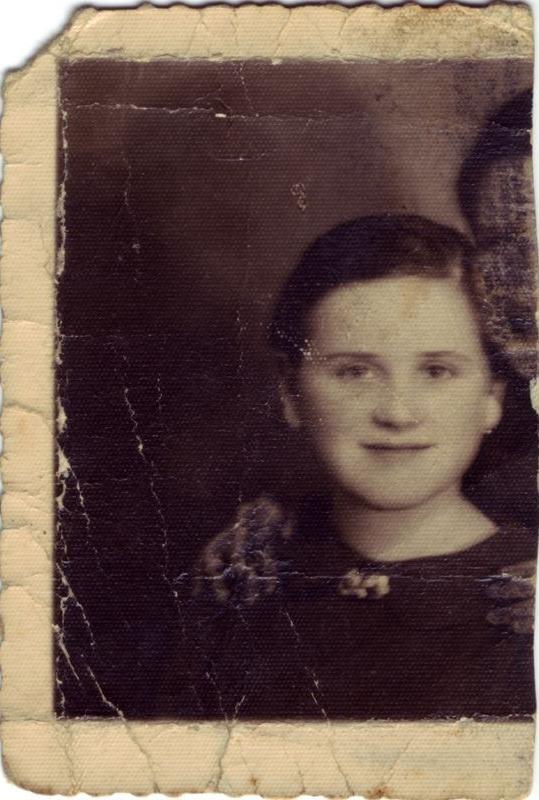
Jewish Life in Sulita
Jewish Life in Sulita
As we walk to the Jewish Museum, housed in the Holy Union Temple, let’s hear from another Centropa interviewee—but this time, let’s travel—at least in our imaginations—a few hundred kilometers north to the Moldavia region to meet Rifca Segal, who Emoke Salzman interviewed for us in 2006. And here’s the picture Rifca paints for us as read for us by Jeni Barnett in London.I was born in 1928 and grew up in Sulita. What was it like? Well, in small Romanian towns, trading was the occupation of Jews. There were Jews who dealt in buying and selling cereals, there were Jews who raised sheep. There were also Jewish handicraftsmen in Sulita-- shoemakers, tailors, carpenters, tinkers… all kinds.My father and mother ran the family store, where they sold clothes, shoes, perfumes, kitchenware, everything.Traveling merchants who came from Botosani with cases of merchandise, who recommended products, and you chose what you wanted for your customers.So it was nice in Sulita. We led a good life and I miss it even now. We had a house with several rooms, a courtyard, and a barn.We dried laundry in the attic, and stored the food in the cellar – because we didn’t have refrigerators back then.We didn’t even have electricity in Sulita. And we didn’t have running water. We had an outhouse and we got our water from a well and a pump.Our bath tub was inside. It was a wonder. You pumped water into it, and beneath it was a grate and place to put in wood or charcoal so you could heat it. It worked perfectly.Our synagogue was lovely. It had a balcony for women. It was a bit plain, because once I moved to Botosani, I could honestly say we had one of the most ornate and beautiful synagogues in the country. It’s still there today. Still gorgeous.Let me interrupt Rifca here for a moment to tell you that in the show notes, you’ll find a link to a photo essay Daniel Grunfeld made for Centropa in the Botosani synagogue. Rifca is definitely not exaggerating.Now in Sulita, Jews observed the Sabbath very seriously. People didn’t cook, didn’t do any laundry, didn’t work, didn’t sell things in the stores. You didn’t light the fire in the winter, there was someone who came – a very nice Christian boy.Everyone had these enormous terra cotta stoves so he chopped the wood and put it in the fire. For Jews, you weren’t even allowed to shred a piece of paper. And everyone followed the rules back then.The bread they had in Sulita, you couldn’t buy it in the heart of Paris nowadays. There were wonderful bakers… Or when there was a holiday, especially on Purim, they added raisins to the bread.As for the war. I can say it simply. It ruined us completely. We were forced to leave Sulita and we were sent with thousands of other families to Botosani. Men went into forced labor. Somehow we survived. We didn’t return to Sulita. There was nothing to return to so we stayed in Botosani.After the war, I went to school, then university and became the chief accountant for a factory. My husband, Iancu Segal, was older than me; we married in 1955. He trained as a lawyer but wasn’t cut out for it. He became a teacher, a very good one, and we never had children.It know it isn’t nice to praise your husband, but you can ask anyone who met him, Iancu was a man of rare gentleness and kindness. I lost him in 1987, just one year after I retired from work.From 1991 until 2001 I taught Hebrew and talmud torah classes for children at the Community. There was nobody else, and they asked me to do it. I was no teacher, but I liked it and so did the children.They sent me punctuation books from Israel and we had fun together. There were 18 pupils in the beginning, then there were 12, 10, 9, 8, and in the end there were 4 of them left by 2003. I don’t teach anymore, for there is no one to teach to, there are two children still in town and I am nearly 78 now.





